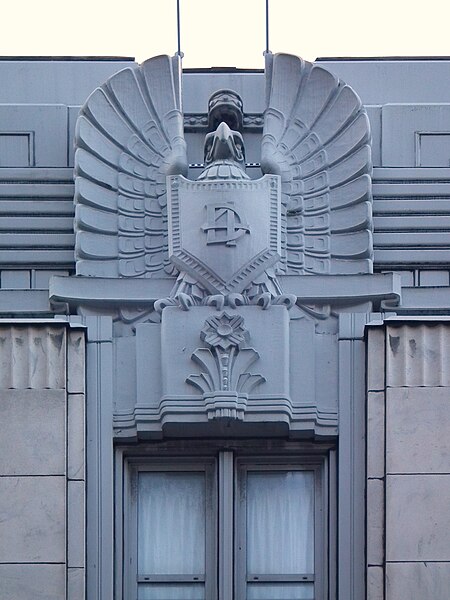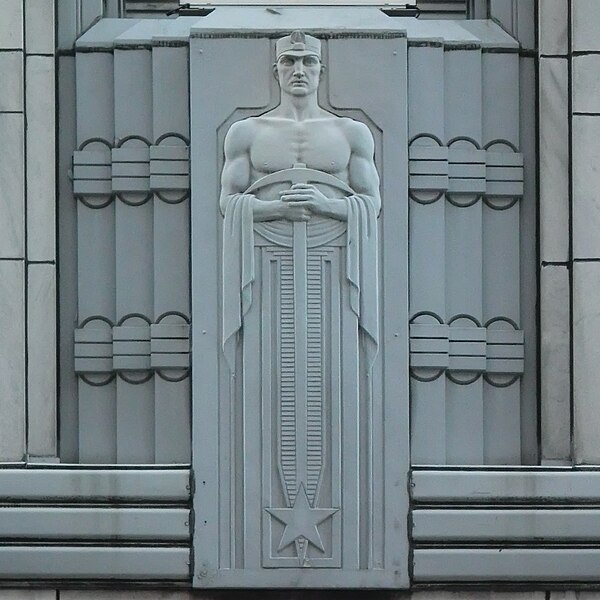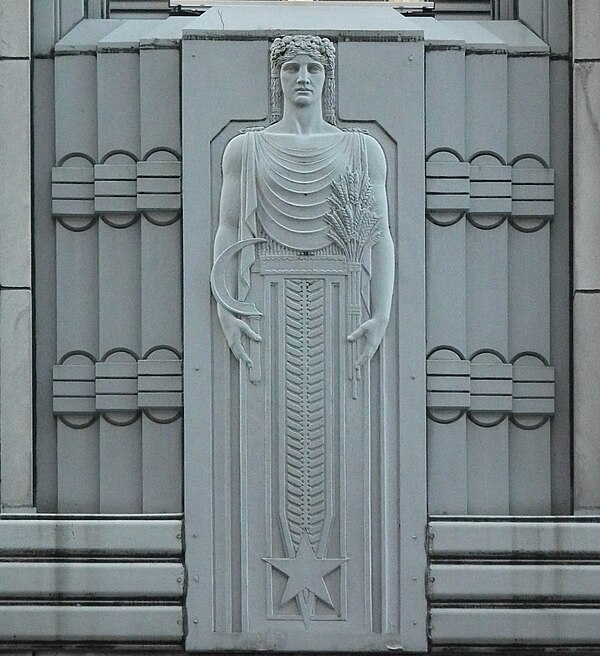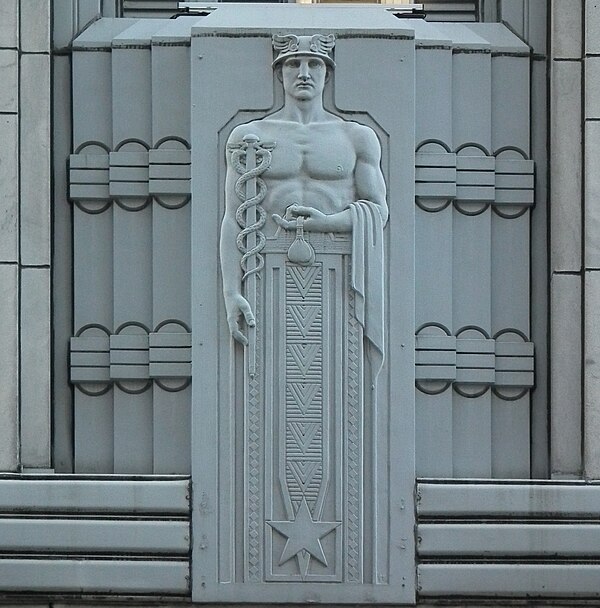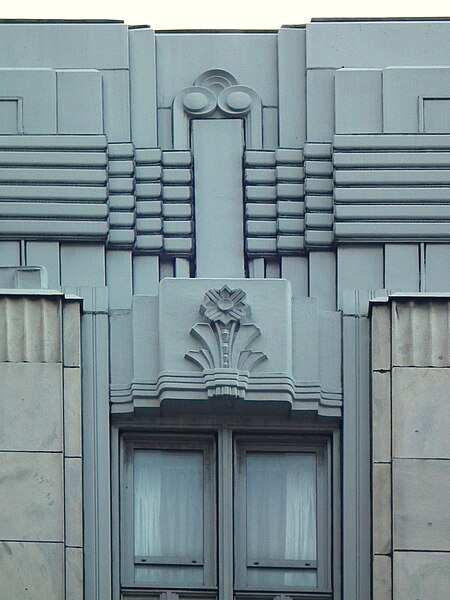
Is it a 1960s sci-fi space liner, or…

…another aluminum-clad building by Harrison & Abramovitz?
It almost seems as though H. K. Porter, a diverse manufacturing concern that began as a locomotive maker, had pointed to the Alcoa Building and said, “We want that, but shorter.” It is not the same building, but the similarity is striking. This one opened in 1958, five years after the Alcoa Building. It used to have the name “PORTER” in big aluminum letters in that niche at the top, but it now carries the logo of FHLBank Pittsburgh, the tenant with naming rights.
The picture above was taken from Steel Plaza, and that is the back of the U. S. Steel Tower flag waving in the breeze. The U. S. Steel Tower, of course, is another Harrison & Abramovitz design.

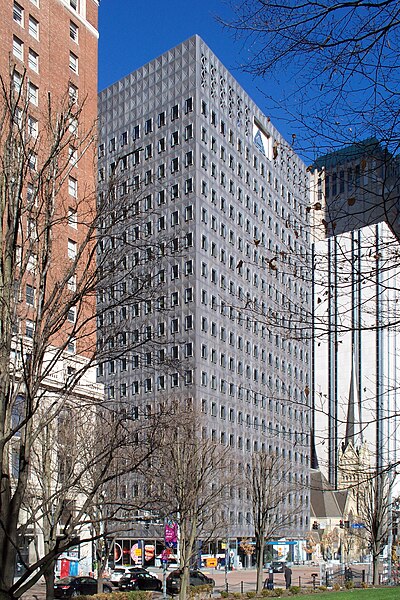
Historic Pittsburgh has an interesting picture of the Porter Building under construction.

